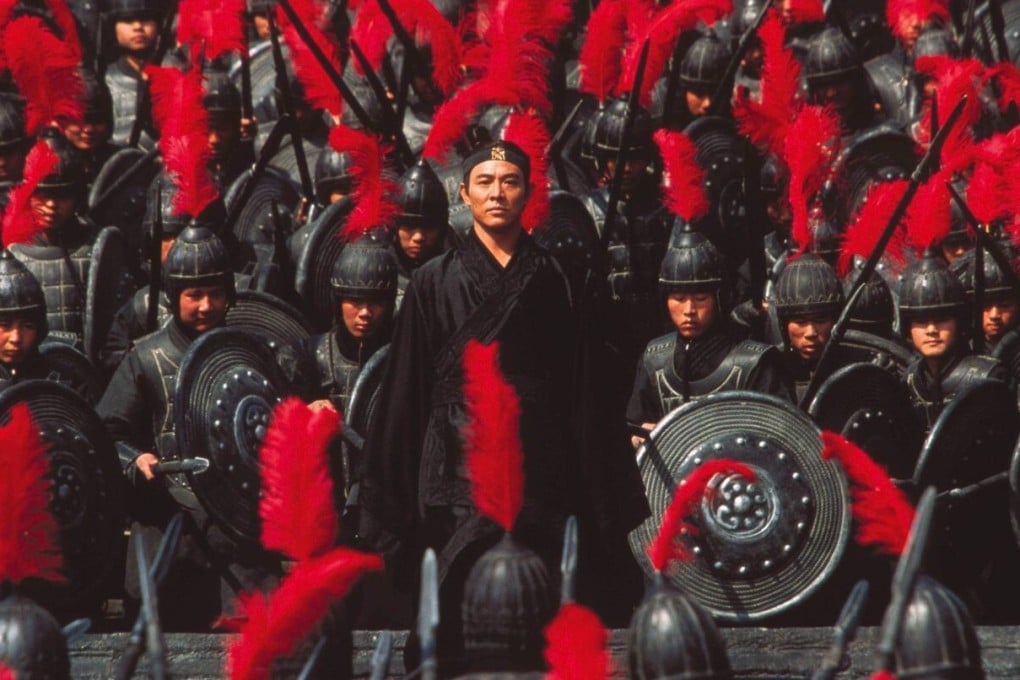How Jet Li’s nameless Hero encapsulates Zhang Yimou’s political philosophy in classic martial arts film from 2002
- Director Zhang has said Hero isn’t political, but that’s hard to believe with its justification of China’s philosophy that authoritarianism is better than chaos
- Jet Li stars as unknown swordsman Nameless, with Hong Kong talent including Donnie Yen, Maggie Cheung and Tony Leung also featuring

Chinese director Zhang Yimou has said that he intended 2002’s Hero to be a cross between an art film and a martial arts movie. The result, however, is more like an uneasy combination of wuxia film and historical drama.
The martial arts scenes are elegant, the massive set-piece battles are impressive, and the delicate and careful aesthetic that underlies the film makes it beautiful to watch. But Hero’s weighty themes aren’t a good fit for the many scenes of fantasy martial arts, and some heavy-handed messaging often makes it come across as a propagandist film that justifies authoritarianism in the name of order. Zhang fared better with his second wuxia film, The House of Flying Daggers, which was an unabashed genre work dressed up with beautiful costumes and equally elegant martial arts sequences.
The film is set around 230BC during China’s Warring States period, when the country was divided into seven warring kingdoms each vying for supremacy. The tyrannical king of Qin finally defeated six rival kingdoms in a series of brutal campaigns, and unified China for the first time. (Spoilers below.)
The story, which was conceived by Zhang, is loosely based on a failed real-life assassination attempt. Hero tells the tale of a fictional group of assassins from the kingdom of Zhou who set out to kill the tyrannical king of Qin because he is waging total war on their literate and civilised kingdom. In a nod to Akira Kurosawa’s Rashomon, the story – which is told in flashback – presents various different iterations of events until the truth is finally revealed.